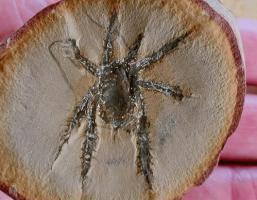Copy Link
Add to Bookmark
Report
Mead Lovers Digest #1075

Subject: Mead Lover's Digest #1075, 13 February 2004
From: mead-request@talisman.com
Mead Lover's Digest #1075 13 February 2004
Forum for Discussion of Mead Making and Consuming
Dick Dunn, Digest Janitor
Contents:
irish mead (Chet Nunan)
Re: tap versus bottled water (Mark Taratoot)
Re: Philistines and Oak Casks (Dick Dunn)
City Water ("Thomas M \"Biz\" Bisard")
boiling water / Lalvin R2 ("Vince Galet")
Re: Mead Lover's Digest #1074, 7 February 2004 ("Dennis Key")
Flavoring a chocolate mead ("Craig Sturdivant")
NOTE: Digest appears when there is enough material to send one.
Send ONLY articles for the digest to mead@talisman.com.
Use mead-request@talisman.com for [un]subscribe/admin requests.
Digest archives and FAQ are available at www.talisman.com/mead. There is
a searchable MLD archive at hubris.engin.umich.edu/Beer/Threads/Mead
----------------------------------------------------------------------
Subject: irish mead
From: Chet Nunan <katjulchet@yahoo.com>
Date: Sat, 7 Feb 2004 19:57:18 -0800 (PST)
re: John Looney post re: irish mead actually a apple
wine with honey added - please tell me it's not the
Bunratty mead! I'm been trying to figure out a way to
make a replica....great stuff, regardless of whether
it's a true mead or not...
Chet
------------------------------
Subject: Re: tap versus bottled water
From: Mark Taratoot <taratoot@peak.org>
Date: Sun, 8 Feb 2004 10:03:16 -0800 (PST)
Hey y'all.
First, a continued thanks to Dick for keeping the digest running.
Thanks also to all the particpiants. Over the years I have
continued to be impressed by the high signal to noise ratio.
A little context about water: I work for a municipal water,
wastewater, and stormwater utility doing outreach and education,
so I know at least a bit about tap water. I've only been making
mead for a dozen years or so, so I'm still somewhat of a novice.
Aaron Culbertson asked about using bottled or tap water for
meadmaking. The short answer is: it depends. In general,
bottled water is a waste of resources (most bottles get thrown
away and not recycled, and the fuel used for transporting bottled
water is significant). There is also some concern about
pthalates leaching from the bottles into the water. I would urge
everyone who is connected to a public water system (i.e., one
serving 25 or more connections) to get a copy of your annual
Consumer Confidence Report. This report will tell you what is in
your water, and it's required that your water provider mail you
one every year. Public water systems are regulated by EPA, and
testing requirements are considerable. Bottled water is
regulated by FDA, and the requirements are different. Further,
if the water is sold in the same state it is bottled, it isn't
even regulated by FDA. Many bottled water companies would have
you believe that bottled water is safer for you; in general it's
not so. Labeling requirements are getting better, but be aware
that much of the bottled water sold actually comes from a
municipal tap. It is also interesting to note that some recent
testing by an independent lab found bacterial contamination among
many bottled water samples. A public water system would have to
report this contamination in a CCR, but bottled water companies
have no such requirement.
If your tap water has taste and odor issues (our utility often
has some t&o problems in the late summer when streamflow is
lowest and we get algal bloom and die-off in the river), you can
use a point-of-use filter. Just be sure to follow the
manufacturers instructions on how often to change the filter or
you may end up giving yourself a concentrated dose of the stuff
you are taking out of the water. Activated carbon is also
effective at removing some sulfur flavors, but unless your filter
has a metal reducing resin, it will not reduce lead or copper.
It is true that public water systems in the USA must maintain a
chlorine residual at the farthest tap in the system. Most of us
agree this is much better than cholera. There are a number of
ways to remove chlorine. Pour some water into a container and
leave it loosely capped for 24 hours. The chlorine will
volitalize. Pouring the water back and forth from one container
to another will speed this process. Another option is again to
use a point-of-use filter. I like carbon block technology better
than granular activaded carbon (GAC) because in GAC, you can get
bypass flow which limits the filtration. Further, GAC is more
likely to give a slug-load of volitieles once the adsorption
capacity is reached. I have a carbon block filter on my kitchen
tap, and to me the water tastes better. I know that it is not
making my water any safer, but I am sensitive to the chlorine
flavor, and the ease of removing it with a filter is good for me
because I'm too lazy to keep jugs of water loosely capped.
Note that even if you do have a taste issue in your water, it may
not be from the water system. We find many taste and odor
complaints come from pipes inside customers' houses. Galvanized
pipes are notorious for scale, and before I replaced my plumbing,
you would have thought I was drinking well water with a high iron
content. It's probably a good idea to flush your pipes every now
and then if you don't use much water. If you have old plumbing
that might have lead solder, it's a VERY good idea to let the
water run a minute or two in the morning before taking a drink.
In the last digest, someone suggested boiling water to remove
chlorine. A caveat is that if you have contaminants in your
water that do not volitize, you effectively concentrate them by
boiling. This would be the case for lead or copper. It's also
somewhat energy intensive, so keep that in mind. This is one of
the reasons that you should not drink water from the hot water
tank.
Bottom line: If you just want to remove chlorine, pour a carboy
of water a few days in advance or use a point-of-use filter. If
your public water supply really does have problems, you should be
able to find out from your Consumer Confidence Report. We've
been hearing reports lately of some real problems with some older
water systems (for example, Atlanta, Georgia) where aging
infrastructure is really causing problems in the water system.
The key is to figure out what there is in the water before you
decide if you need more advanced technology. Please don't simply
buy the hype that bottled water is somehow better.
Sorry for the long post. Rest assured that there's much more
information if you are interested.
Cheers!
- -m
- --
Mark Taratoot
taratoot@peak.org
------------------------------
Subject: Re: Philistines and Oak Casks
From: rcd@talisman.com (Dick Dunn)
Date: Sun, 8 Feb 2004 12:10:57 -0700 (MST)
"John P. Looney" <valen@tuatha.org> wrote in MLD 1074:
> I know many reenactors, and they love anything historical. However, they
> have drunk many of the commercial meads (which I've have recently found
> that at least one "Irish Mead" is actually apple wine that has honey added
> just before bottling)...
Would that be the infamous Bunratty "Meade"? (Note misspelling, which is
part of their scam since it's not mead at all.) Sure sounds like it, but
the last I knew they were using poor-quality grape wine as the base, rather
than apple.
> Has anyone written a treatise or something this, so I could convince
> people that my meads *really are mead* ? People say "but that tastes just
> like wine" or "there is no honey off that" etc.
>
> My responses like "wine doesn't taste like grapes" and "cider doesn't
> taste of apples" don't seem to work.
Well, if you can figure out a way to teach people that mead doesn't have to
taste like raw honey, cider-makers sure could use advice on how to teach
the same lesson! Unfortunately, it's equally hard to convince people that
"cider doesn't taste of apples"...and that's due to a similar problem of
perception, made *worse* by the fact that there's a lot of "industrial
cider" (Strongbow, Woodpecker, etc.) that is doctored up or back-sweetened
with juice to make it taste more like apple alco-pop than like cider.
The mead world is actually more fortunate in that there are only a few
commercial examples of lame mead.
- ---
Dick Dunn rcd@talisman.com Hygiene, Colorado USA
------------------------------
Subject: City Water
From: "Thomas M \"Biz\" Bisard" <mrbiz@torchlake.com>
Date: Sun, 08 Feb 2004 15:36:30 -0500
Hello All:
In regards to Mr Culbertson's question about city water, I've found that
when excessive chlorine may be a problem just let the water sit overnight
and much of the chlorine will evaporate from the water. I've used this
method for plant watering for years. Most city water isn't a
problem.....and as always, let your taste buds and nose be your guide.
Hope this helps a bit,
Biz
------------------------------
Subject: boiling water / Lalvin R2
From: "Vince Galet" <vince@scubadiving.com>
Date: Mon, 9 Feb 2004 11:41:52 -0500 (EST)
Greetings
1) just chiming in on tap water: Most water companies use chloramines that
do not get eliminated if you boil the water. They would be eliminated
through filtration on activated charcoal. On the other hand, distilled
water or water that is stripped from all minerals doesn't taste as good
and lacks some elements necessary for yeast growth. Besides, tap water
contains a lot of contaminants that are "within normal range". These are
actually "acceptable levels" but the true "normal" level for these
contaminants should be 0. Bottom line, unless you are lucky and have great
tap water (it can happen for instance if you live in the mountains),
nothing beats spring water. The difference may not be huge (unless your
tap water is really foul - it happens too) but every little bit counts and
intangibles are important IMO. Someone pointed out that some famous
breweries insist on the quality of their water. Of course, spring water
comes at a price but that's true for anything. There is no free meal.
2) I'd like to try Lalvin R2 yeast in my mead because I read that it was
isolated in the Sauternes region, and Sauternes is a wonderful sweet wine.
Did anyone ever try this yeast? Also, my homebrew store doesn't have that
one. Would anyone know where I could get it?
vince
------------------------------
Subject: Re: Mead Lover's Digest #1074, 7 February 2004
From: "Dennis Key" <dione13@msn.com>
Date: Tue, 10 Feb 2004 12:56:41 -0700
Re: John P. Looney's post regarding commercial meads: In Albuquerque,
NM the Bee's Brothers meadery has been in operation for over two years.
Theirs is a true mead and tend to be on the sweet side. They has a
King's Sack Mead at around 18% along with their Queen's Sack, Spicy,
Raspberry and Sweet meads. You can go to their website: Bees
Brothers.com and inquire about shipping. If you live in the local area,
the site will give you phone numbers. They love visitors.
In the not-too-distant future, another meadery will be starting in the
Albuquerque area. The mead mistress, Amber Isis, has been treating us
locals to her meads for several years. She has just completed all the
bureaucratic hoopla with the feds to begin producing her mead
commercially. As soon as she is up and running, I will post her web
site as well.
May You Never Thirst,
Dione Greywolfe (aka Dennis Key)
------------------------------
Subject: Flavoring a chocolate mead
From: "Craig Sturdivant" <csturdiv@hotmail.com>
Date: Wed, 11 Feb 2004 19:49:29 +0000
I have 2 1/2 gallons of a sweet chocolate mead going through bulk carboy
aging. Later in the spring I will be bottling it, and I have decided to
flavor it with raspberry (probably the raspberry extract flavoring avaiable
at brew shops). Last night while talking to guys in my brew club I thought
that it might be nice to bottle half with peppermint also, kind of like a
peppermint hot chocolate. So about half of the 2 1/2 gallons will be
raspberry and half will be peppermint. How much of each extract should I
use, allowing the extract's flavor to come out, but not totally masking the
chocolate taste in the mead?
------------------------------
End of Mead Lover's Digest #1075
*******************************






















